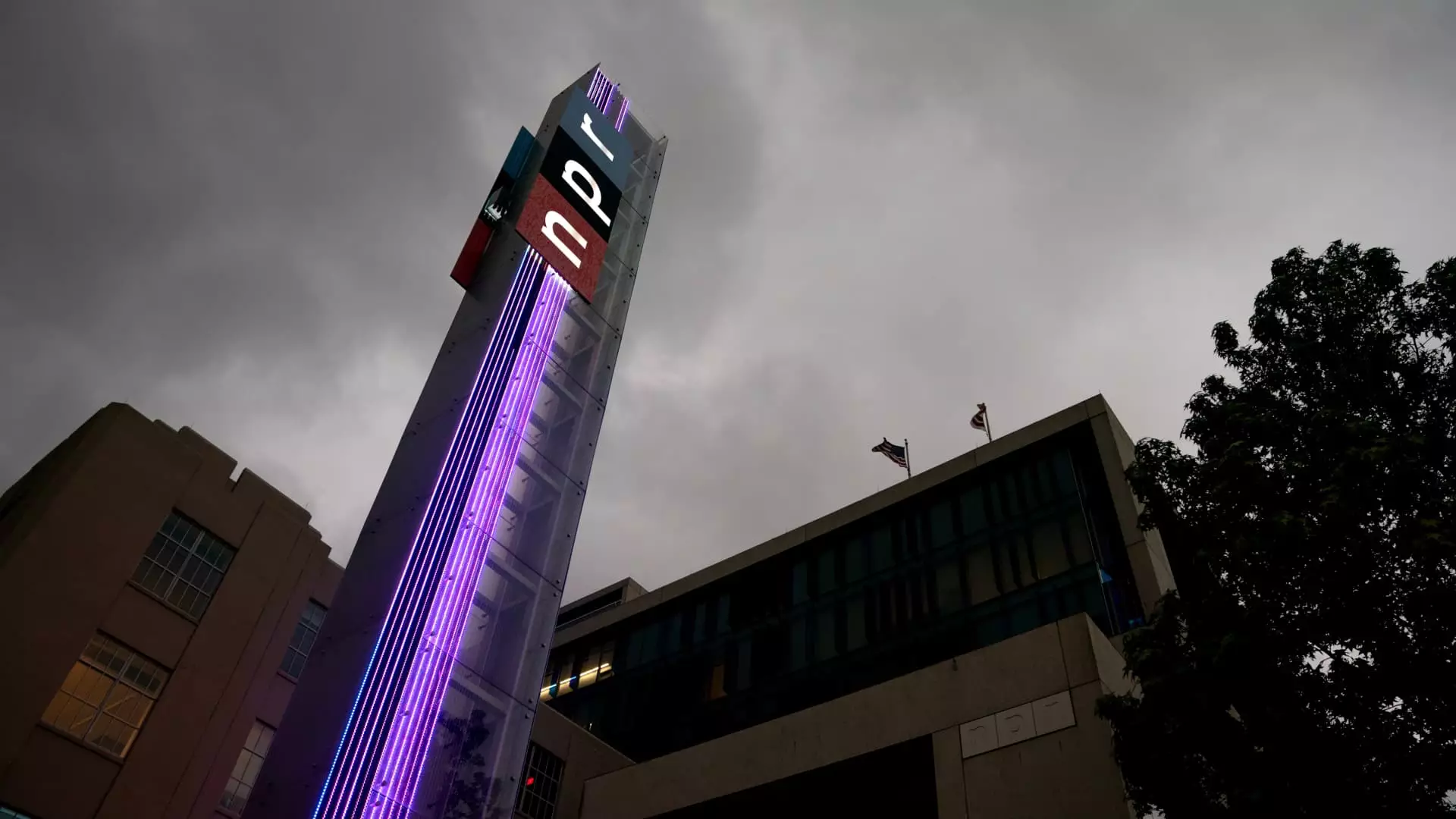The recent lawsuit filed by National Public Radio (NPR) against President Donald Trump is not merely a legal dispute; it is a crucial confrontation over the principles of free speech and independent journalism in America. At a time when the nation grapples with misinformation and attacks on the press, Trump’s executive order to halt all federal funding for NPR and similar organizations could be viewed as a direct strike against the foundation of democratic norms. The implications of this lawsuit extend far beyond the courtroom, touching the very core of what it means to have a free press in a democratic society.
First and foremost, Trump’s order is a blatant attempt to manipulate public narratives by dictating which viewpoints are worthy of support. By declaring NPR’s funding outdated and claiming it compromises journalistic independence, the administration flips the reality on its head. The conservative viewpoint seems to be rooted in the belief that government money is synonymous with government control—a notion that gives credence to the misinformed rhetoric that portrays NPR and PBS as biased entities. This framing not only undermines the integrity of these organizations but also muddles the definition of what it means to be unbiased in journalism.
Historical Context: A Long-Standing Arrangement
It’s worth examining how public broadcasting in the United States has evolved. When NPR was founded in 1970, its survival relied significantly on federal funding. Over the decades, however, shifts in political landscapes have changed the way public broadcasting is financed. The Corporation for Public Broadcasting (CPB) now plays a crucial role in directing federal resources to local stations, which in turn curate NPR’s programming. Notably, federal funds today make up a mere 1% of NPR’s total revenue; the majority comes from corporate sponsors and listener donations. This underscores a fundamental truth: NPR does not function as a mouthpiece for government ideology but as an independent institution that aims to inform the public.
Trump’s claim that public media supports a political party fails to recognize the diverse viewpoints NPR fosters. NPR has managed to bring attention to critical issues—from climate change to social justice—while inviting dialogue across the political spectrum. The President’s characterization paints a dangerously simplistic picture of the media landscape, obscuring its complexities in favor of a narrative that serves his political agenda.
The Legal and Moral Stakes
The heart of NPR’s lawsuit hinges on the violation of the First Amendment—an amendment that the Administration has often seemingly disregarded when it threatens its interests. By targeting funding, Trump seeks to instill fear in media outlets, hoping they will self-censor in order to keep their doors open. This systematic approach to snuffing out dissent can be described as textbook retaliation—what is more chilling is its potential success in eroding public trust in independent journalism.
The legal complaint filed not only aims to block Trump’s order but to protect the very essence of what free speech looks like in practice. The implications of allowing such an executive order to stand would be profound, setting a precedent for governmental overreach into the realm of journalism. The chilling effect this has could leave journalists second-guessing their reporting, fearing the potential repercussions of government funding cuts based on their coverage.
A Call to Action for Democratic Values
The battle against this executive order goes beyond defending a single news organization; it is a rallying cry for all who care about the values of democracy and free expression. Americans must recognize that public broadcasters serve as a critical watchdog, bringing attention to issues often sidestepped by commercial media driven by profit margins. Public media offers a lifeline of crucial information, community narratives, and a platform for underrepresented voices that commercial outlets often overlook.
As citizens, engaging with and supporting independent journalism is vital for maintaining a healthy democracy. We must hold accountable any administration that seeks to chip away at our rights. The fight against Trump’s order is a call to arms for all who cherish free speech—a reminder that journalism, especially public broadcasting, is a crucial pillar of our democratic society. It is not simply about another political fight; it’s a pivotal moment for American identity and the freedoms that define it.

